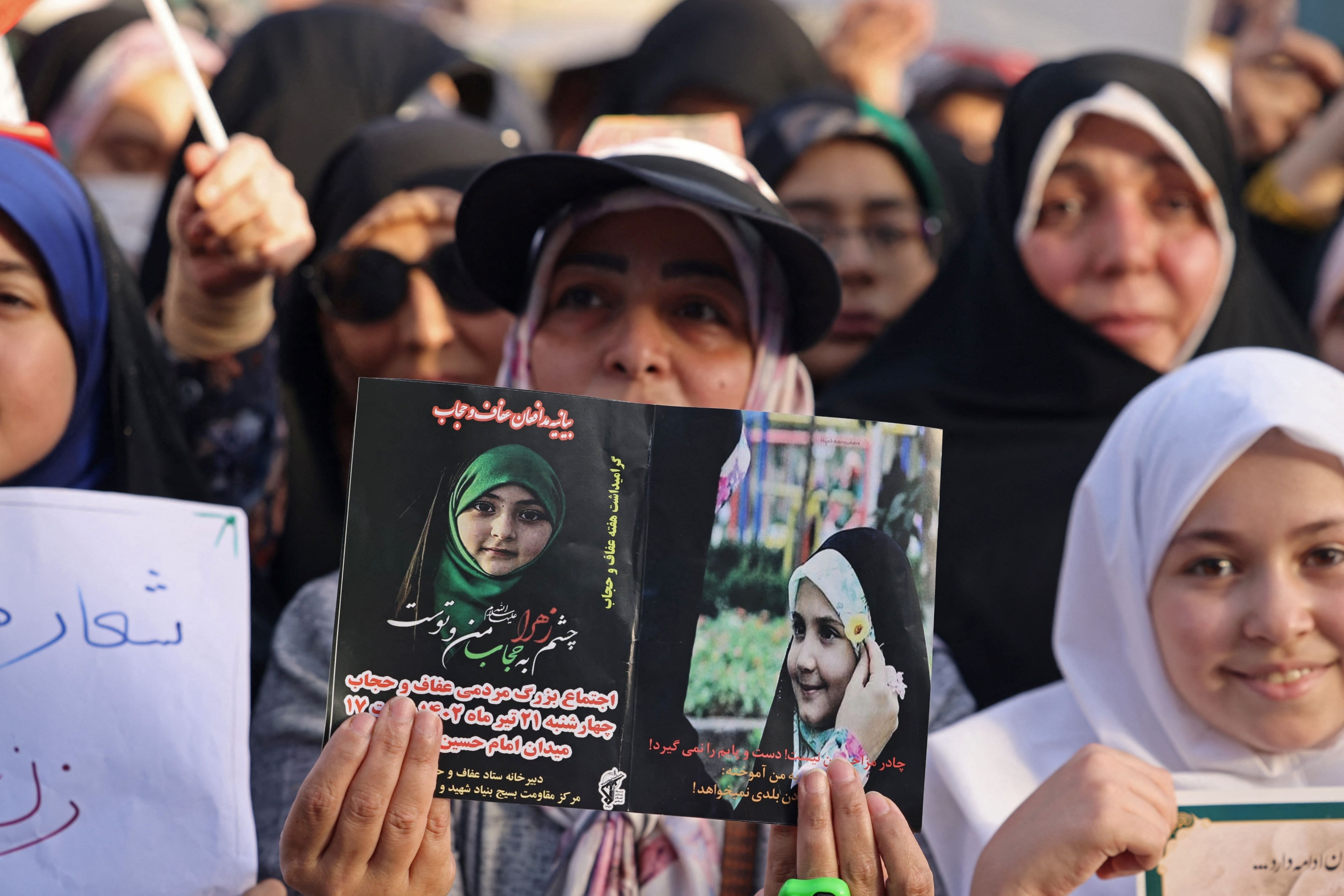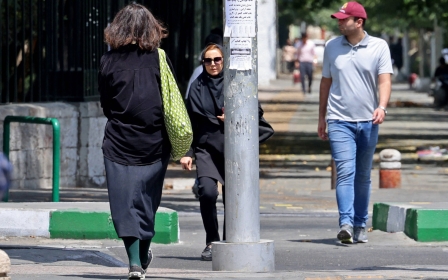Iran: Renewed hijab crackdown threatens country's fledgling start-up sector

Last month, pictures surfaced of female employees at Digi Kala - Iran's largest e-commerce company - working without hijabs and quickly spread on social media networks.
In response, police officers sealed off the company's office building as a warning against non-compliance with the Islamic Republic's rules on female dress.
A few days later, the online bookstore Taqcheh made headlines for a similar reason and was eventually blocked after the Ministry of Culture took action against it.
In addition, twenty state-run publishers ceased working with the company due to the employees' not observing the mandatory hijab.
The publishers argued that not only was the hijab law disregarded, but no corrective actions were taken to rectify this mistake.
New MEE newsletter: Jerusalem Dispatch
Sign up to get the latest insights and analysis on Israel-Palestine, alongside Turkey Unpacked and other MEE newsletters
Az Ki, an internet platform for insurance services, was the third startup in Iran's private sector to be shut down by the government due to its employees' resistance to the headscarf.
The crackdown has dismayed many in Iran's fledgling start-up sector and has prompted fears of an exodus to Europe and neighbouring countries with less restrictive rules.
A founder of a startup in Iran who wished to remain anonymous told MEE that emigration was becoming a reality.
“The trend of immigration is predominantly towards Europe, with individuals with lower qualifications heading to Turkey and Dubai," he explained.
Another startup founder concurred with this assessment.
'Iranian officials are imposing increasing pressure, leading to a wave of migration of knowledge bases, startups, and talents. The Islamic Republic must be ashamed'
"Foreign countries, particularly the UAE and Turkey, are offering golden visas and various incentives to attract Iranian startups and knowledge-based companies," they said, speaking on condition of anonymity.
"Simultaneously, Iranian officials are imposing increasing pressure, leading to a wave of migration of knowledge bases, startups, and talents. The Islamic Republic must be ashamed.”
The anger sparked by the death of Kurdish woman Mahsa Amini at the hands of the morality police after being arrested for "inappropriate hijab" has continued to simmer.
But despite the outcry, and the increasing prevalence of women not wearing headscarves in cities like Tehran, the conservative government has pushed back and restored the authority of the morality police after they had been effectively suspended for months.
According to the Iranian Migration Observatory, 67 percent of start-up workers have now expressed a desire to leave the country.
'No glimmer of hope'
But the crackdown on start-ups has started to worry some Iranian conservatives who are becoming increasingly concerned about stifling innovation in a country whose economy has been in crisis for many years.
Conservative newspaper Farhikhtegan warned that President Ebrahim Raisi's administration was being influenced by a group of hardliners who were steering the government in the wrong direction.
'I see no glimmer of hope for any positive change in the approaches of the current government'
According to the paper, these hardliners stigmatisation of start-ups and could push them towards civil disobedience.
“A group of hardliners who think like Salafis in the Arab world, have taken over the country, and the result is clear," said one former conservative official who didn’t want his name to be revealed.
“I see no glimmer of hope for any positive change in the approaches of the current government.”
An exodus beginning?
A number of the closed startups have since signed a commitment stating that they won’t allow violation of the law to happen again.
At the same time, Rouhollah Dehghani Firouzabadi, the vice president for science, technology, and knowledge-based economy, made a statement suggesting that countering individuals who did not adhere to hijab was best achieved by "supporting revolutionary currents" within the startup ecosystems.
This statement has sparked unease and raised eyebrows among many startup enthusiasts. They believe it indicates that the government intends to suppress grassroots startups and support hardline elements within the start-up ecosystem.
In response to the closures of start-ups, the Fintech Association and the Association of Emerging Businesses of Iran released a joint statement condemning the decisions as significant obstacles to the private sector's development, leading to a severe loss of knowledge-based companies and startups and an increase in emigration.
A lawyer, who chose to remain anonymous, argued to MEE that the suspensions are against the law.
He emphasized that the ninth principle of the constitution underscored the freedom of citizens and those implementing the measures did not understand the law and were merely using it to enforce their personal preferences.
"I don’t know how the Islamic Republic thinks," said the anonymous start-up founder.
"Because even if they cared about their own survival and economy, they shouldn’t have behaved like this.”
Middle East Eye delivers independent and unrivalled coverage and analysis of the Middle East, North Africa and beyond. To learn more about republishing this content and the associated fees, please fill out this form. More about MEE can be found here.





